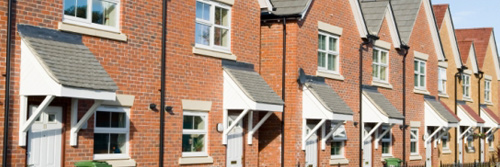
Since the late 1980s Governments and local authorities have drastically reduced new social housing, focusing instead on facilitating home ownership and assuming private landlords would provide accommodation

The Society of St. Vincent de Paul has welcomed the Government’s new ambitions for social housing construction in the context of its publication of a new Social housing Strategy.
“Social housing Strategy 2020 is long overdue. Ireland is paying the price for the previous policy which has been operating since the late 1980s and which caused a degree of homelessness bigger and more acute than ever previously experienced with 800 children and their families becoming homeless in the first 10 months of this year” SVP commented when the Government published its new strategy. “Rents are high and rapidly increasing in the private rented sector, resulting in insecurity and homelessness; and local authority social housing supply is completely insufficient to meet the housing needs of the record-level 90,000 households on housing waiting lists.
“We welcome the actions contained in the Strategy which, when implemented, will provide hope of a secure, better quality home for those who need support in acquiring one. The Strategy restores the role of the State in the direct provision of social housing through a resumption of building on a significant scale.”
However, the new Planning and development Bill (2014) requires that 10% of new units in private developments must be delivered for social housing solely. This needs to be implemented and honoured. Private profit for the few- including powerful construction interests- must not derail plans again.
The central role that the private rented sector plays in the Irish housing system means that it has the capacity to provide quality, thermally-efficient, secure housing - but has a long way to go. The sector requires support and investment to deliver a real housing choice, given that the State is a massive funder of the private rented sector with over half of all rents to landlords - over half a billion euro coming from Rent Supplement, RAS and related supports at major cost to the exchequer.
But the use of the private rented sector to meet social housing needs means that legislative and policy reform is required for an adequate supply of good quality accommodation. Cases of extremely poor physical standards in parts of the private rented sector are many and these units are often occupied by people on low incomes. Physical and energy standards must be improved through legislation using the same 2020 timeline. The home renovation incentive tax relief helps landlords to fulfil such obligations.
An enhanced role for voluntary providers (also known as Approved Housing Bodies) in delivering social housing is also welcome- however it is accepted that this sector needs to scale up in capacity and where necessary share back-office services in order to have the size and structure required to meet the level of demand for housing among those on lower incomes.